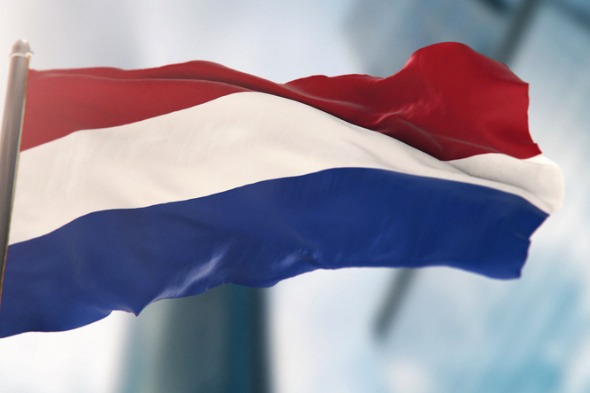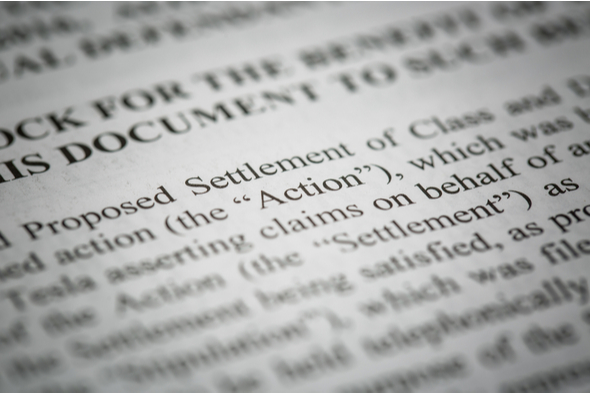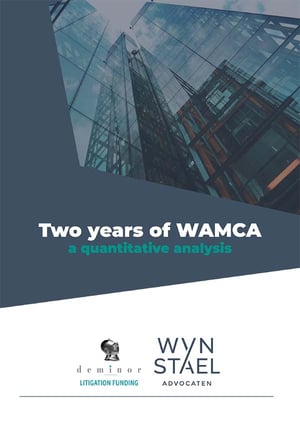Since 1 January 2020, it has been possible for claimants in the Netherlands to recover damages in collective actions under the Dutch Act on Collective Damages Claims (“WAMCA”). After two years of proceedings under the WAMCA, it is time to take stock. What has the introduction of the WAMCA brought us so far? How many collective claims have been filed under the WAMCA, and what kind of claims are involved? Do we see mainly Dutch companies that have to defend themselves against the claims filed or also foreign companies? How many claims have been funded externally by litigation funders and for what consideration? How many claims have been granted or rejected to date? What can we expect from the WAMCA for the coming years if we look at the figures that we have currently available? These and other questions are answered in this article by means of quantitative analysis. This quantitative analysis will be updated periodically, and future trends will be made visible once more data becomes available.
By Deminor and Wijn & Stael Advocaten
1. Introduction
With the entry into force of the WAMCA on 1 January 2020, the Netherlands enacted a single regime for bringing collective redress actions. Under the WAMCA, representative organisations, associations or foundations can defend the interests of certain groups of legal persons or a general interest, as defined in their articles of association. In cases of mass damage, it is possible to sue for damages, but it also still possible to seek only declaratory and/or injunctive relief.

The WAMCA is very similar to the American class action in several respects. For example, just like in the United States, a lead plaintiff is appointed (the exclusive representative of interests or “exclusieve belangenbehartiger”) if various representative organisations submit competing claims. There is also an admissibility test that is similar to the American motion to dismiss. Like American class actions, the WAMCA makes use of an 'opt-out' system whereby victims are included as claimants by default but can withdraw from the proceedings by means of a statement submitted to the court.
Partly for this reason, there was (and is) a fear among some that the introduction of the WAMCA could lead to "American practices". Rightly or wrongly, this refers to a "claim culture" in which claimants, possibly spurred on by external litigation funders, can litigate lightly and too easily with enormous damages at stake for matters for which they would never have litigated themselves without the WAMCA. This would be to the detriment of the competitive position of the sued parties compared with their competitors based in jurisdictions with a less favourable collective procedural law for injured parties. Another opinion was (and is) that the judicial system would become overloaded when the WAMCA took effect.
However, the WAMCA imposes strict requirements on representative organisations that initiate collective actions under this act. For example, the representative organisation must be sufficiently representative when it comes to the interests it purports to represent. In addition, there are requirements regarding the governance and funding of the representative organisation and publicity requirements. The representative organisation must have sufficient experience, expertise and know-how with regard to the interests it represents. These strict requirements are aimed, on the one hand, at safeguarding the interests of the victims represented by the representative organisation, but also, on the other, at protecting the sued parties against unsubstantiated or frivolous mass claims.
After two years of WAMCA, it is time to take stock. Has the WAMCA led to an enormous amount of collective claims in the Netherlands? How many claims have been filed under the WAMCA, and what kind of claims are involved? Who are the defendants? Are they mainly Dutch companies or also foreign companies? How many of these claims have been funded by litigation funders and for what fees? How many instituted claims have been granted or rejected under the WAMCA? What else can we expect from the WAMCA for the coming years if we look at the figures that are currently available?
These questions and others are answered below by means of quantitative analysis. For this purpose, the information from the "Central Register of Collective Claims" as updated to 31 December 2021 was used.[1] In section 3, further clarification is given on how the figures can be interpreted.
The complete quantitative analysis, which forms the basis for this article and also contains additional data and information, can be sent upon request.
2. Quantitative analysis
2.1 Number of claims filed
During the period 1 January 2020 - 31 December 2021, a total of 54 collective claims were filed under the WAMCA and entered in the Central Register of Collective Claims. Of these 54 collective claims, 18 were filed in 2020 and 36 in 2021. We thus see a doubling of the number of claims in the second year after the WAMCA came into force.
However, the total number of 54 collective claims needs to be put into perspective.
Of the 54 collective claims filed, 2 collective claims are appeals of previously dismissed claims, and 11 of the filed claims are competing claims by different representative organisations where no exclusive representative has been appointed yet. For example, in the WAMCA proceedings against Daimler, Renault and TikTok, three different representative organisations have each submitted competing claims. For the proceedings against Airbnb, two different representative organisations filed competing claims.
In short, of the total of 54 collective claims filed, 45 are in fact stand-alone issues because 2 of the collective claims filed are appeal proceedings and out of the 11 competing claims filed, only 4 proceedings will remain once the lead plaintiff is appointed.
2.2. Number of collective proceedings started in which a final judgment was rendered
In only a limited number, i.e., 9, of the collective proceedings initiated, the court has already delivered a final judgement in the first instance. In 8 cases, the court has issued a dismissal, and in only 1 case, the court has granted an award. A dismissal can be a declaration of inadmissibility, rejection of the claim or a mixed judgement.
2.3. Competitive claims
As indicated in Section 2.1, various representative organisations filed 11 competing WAMCA claims.
The collective claims against Daimler and Renault involve Stichting Diesel Emissions Justice, Stichting Car Claim and Stichting Emission Claim. These are three foundations that each separately represent the interests of former owners of diesel cars and have instituted claims in connection with damages allegedly suffered as a result of fraudulent software in diesel cars.
The collective claims against TikTok concern, in short, the alleged damages suffered by users of the TikTok app due to the violation by TikTok of the General Data Protection Regulation and other laws and regulations. All of Stichting Onderzoek Marktinformatie, Stichting Take Back Your Privacy and Stichting Massaschade & Consument seek to defend the interests of the affected users of the TikTok app and have started collective proceedings against TikTok. Stichting Massaschade & Consument has also started collective proceedings against Airbnb and has been followed by Stichting Aequitas Belangenbehartiging.
In these collective proceedings, the court will appoint one representative organisation as exclusive representative. However, no decision has been made on this yet. It is currently not possible to determine which aspects the court will use or attach more importance on when appointing the exclusive representative.
2.4 Defendants
When it comes to the defendants, we see the following numbers of claims filed in the following categories.
Geographical distribution of defendants:
| One or more Dutch defendants: | 36 |
| One or more foreign defendants: | 7 |
| Combination of Dutch and foreign defendants: | 11 |
Type of defendants:
| Dutch State/Public entity: | 16 |
| Company/legal entity: | 30 |
| Natural person: | 8 |
Thus, of the total number of collective claims filed, 18 were filed against, among others, foreign defendants – in short, one third of the total number of claims filed. A total of 7 cases concern collective claims in which no Dutch party is a defendant, and exclusively one or more foreign defendant(s) are named. These 7 cases are against Airbnb Ireland UC (2 cases), Apple Distribution International Ltd. (1 case), Tiktok Technology Limited and affiliated companies (3 cases) and one other case with a foreign defendant.
Of the 16 claims against the Dutch State, 4 claims relate to Covid measures, 10 claims relate to issues of public interest and human rights and 2 claims relate to other issues.
Of the 8 collective actions against natural persons, Stichting Brein has initiated 7 of these proceedings. These proceedings relate to online infringement of intellectual property rights. Stichting Brein represents the interests of affiliates whose copyrights need protection.
A more in-depth analysis of the defendants in the various proceedings also shows that sometimes natural persons or relatively smaller companies are sued in WAMCA proceedings. Since, through WAMCA proceedings, damages can be claimed for the entire group of represented victims, they are confronted with claims of a considerably larger size than would have been the case under the old regime. This can be problematic, as the liquidity position of and the possibilities for such individuals or smaller companies to raise new capital are usually more limited, especially in comparison with larger (listed) companies. In addition, it is also expected that the costs for defence in WAMCA proceedings will, on average, be higher than in proceedings under the old regime. The costs associated with the defence will therefore more quickly become problematic for these natural persons or smaller companies than for larger, more capitalized companies.
2.5 Categories of proceedings to which the claims submitted relate
If we look at the nature of the interests defended by the representative organisations in the collective proceedings, the following subdivision can be made:
| Public interest & human rights: | 13 |
| Consumer protection: | 11 |
| Intellectual property & anti-counterfeiting: | 11 |
| Labour law: | 8 |
| Privacy & data abuse: | 4 |
| Public health (Covid measures) | 3 |
| Bankruptcy law/creditor protection: | 1 |
| Commercial law: | 1 |
| Competition: | 2 |
2.6 Externally funded WAMCA proceedings, funders and fees
Of the 54 claims filed, 15 are funded by external litigation funders. Not only typical litigation funders such as Innsworth, Omni Bridgeway, IVO Capital and Vannin Capital, but also US law firms such as Whitfield, Bryson & Mason LLP, Greg Coleman Law PC, Hagens Berman Sobol Shapiro LLP and the Dutch Consumers' Association are funding class actions. In addition, several special purpose vehicles are funding a number of class actions where it is not possible to identify the funder behind the SPV.
The external funders always ask for a percentage of the achieved result as payment, sometimes increased by all or a part of the incurred costs.
The external funders apply different compensation structures. A number of funders apply a fixed percentage in the event of success and other funders work with a graduated scale in which the percentage applied depends on the result achieved.
The lowest percentage is (under certain conditions) 10% of the achieved result, and the highest percentage is 27.5%. Most cases are funded against a fee of 25% for the litigation funder.
Finally, it is striking that of the 15 externally funded proceedings, 10 involve different representative organisations that have submitted competing claims against Daimler, Renault, TikTok and Airbnb. In short, there is a relatively high degree of competition in externally funded proceedings. There may be several explanations for this phenomenon, which will be discussed in more detail in Section 3.5.
3. Interpretation of figures and outlook
3.1. Expected increase in WAMCA cases in 2022
As described above in Section 2.1, the number of WAMCA proceedings has already doubled in the second year after the entry into force of this Act. If this trend continues and the number of proceedings doubles again, 72 new proceedings will be started in the third year after the WAMCA comes into force (2022). However, it is unrealistic that this exponential growth will continue. We do expect, though, that more collective proceedings will be commenced in the coming years, as soon as the operation of the new law has crystallised. When the growth in the number of WAMCA proceedings will level off is, however, not certain.
It is also likely that, with the passage of time, new proceedings will more often be commenced on the basis of the WAMCA and no longer on the basis of Section 3:305a of the Dutch Civil Code (old), as was often done prior to the enactment of the WAMCA. If the facts and circumstances on which the class action is based run until after 15 November 2016 or took place after that date, the new Act applies exclusively.
Although collective proceedings lead to an efficient and effective resolution of mass claims, the question is whether proceedings under the WAMCA are manageable for the judiciary. Although it is expected that the WAMCA proceedings that have been instituted will be more manageable for the judiciary than the hundreds or sometimes thousands of individual proceedings that would need to be initiated without a collective mechanism, the question is how many WAMCA proceedings the Dutch legal system can handle. Furthermore, it is uncertain what a further increase in the number of WAMCA proceedings will do to the turnaround times of these proceedings. If WAMCA proves to be successful for injured parties, it is expected that individual claims by (mostly) consumers will increasingly be brought before the courts collectively. This will result in an increased burden on the judiciary system. For the time being, this load seems to be concentrated in the courts of Amsterdam and The Hague. It is not clear whether these courts are sufficiently equipped to process a larger number of collective proceedings within a reasonable period of time, especially in view of the complexity of these proceedings. The question therefore arises whether the effectiveness of WAMCA proceedings can be guaranteed in practice. It would be unfortunate if the WAMCA procedure were to succumb to its own success. The government will therefore have to make sufficient resources available so that courts can decide WAMCA proceedings within a reasonable period of time.
3.2 Categories of WAMCA proceedings
Since we have not examined the number of collective proceedings brought before 2020 and in which categories they fall, the focus in the following paragraphs is only on collective proceedings that have started since the introduction of the WAMCA.
The fact that most of the proceedings initiated in 2020-2021 under the WAMCA (13 in total, see Section 2.5) concern violations of the "public interest" or human rights is not surprising. These proceedings were mostly initiated by representative organisations that already existed and were active before 2020. When the WAMCA was introduced, these organisations already had the knowledge, experience and financial resources to start collective proceedings. Another factor is that these subjects can count on interest from the public.

The large number of collective proceedings (11 in total) involving the protection of consumers is also not surprising. Individual consumers often have relatively small claims, so often only collective proceedings can offer a practical mechanism for asserting these claims in view of the costs of individual proceedings. Additionally, consumers feel the need for the support of a professional representative organisation, as they lack knowledge and experience when it comes to litigation.
A shared number two position is occupied by claims relating to infringement of intellectual property rights and counterfeiting (11 in total). What is striking is that of the 11 claims filed, 10 were filed by one foundation, namely Stichting Brein. This makes Stichting Brein the most active representative organisation that instituted WAMCA proceedings. Stichting Brein represents the interests of authors, performing artists, publishers, producers, and distributors of music, films, books and interactive software.
In fourth place are actions in the field of labour law (8 in total). These were mainly initiated by trade unions. It is a fact that trade unions already initiated proceedings in which they represented the collective interest of employees before 2020. We did not investigate whether the number of proceedings initiated by trade unions in 2020 and 2021, 6 in total, increased compared to before 2020.
It is remarkable that in the period 2020-2021, no class actions were filed regarding the violation of environmental laws and personal injury. Nor were proceedings instituted by shareholders for the dissemination of misleading information (so-called “securities litigation”). If these types of collective proceedings are initiated in the near future, which is a reasonable expectation, this will contribute to the expected increase in the number of WAMCA proceedings as discussed above (Section 3.1).
3.3 Few final judgments compared to number of claims filed
As mentioned above in par. 2.2, the court has rendered a final judgment in the first instance in only 9 of the collective claims filed. These were all 'public interest' actions. The court was probably able to handle these claims more quickly because, pursuant to Art. 3:305a subsection 6 Dutch Civil Code, the admissibility requirements of Art. 3:305a subsection 2 under a - e Dutch Civil Code did not have to be tested. This simplifies the procedure and prevents delay.
Against the background of the expected increase in the number of class actions (as discussed above), the question arises whether a class action under WAMCA is efficient in the sense that a final judgment can be expected within a reasonable period of time. In this context, it is also relevant what should be considered a ‘reasonable period of time’ within which courts should reach a decision in proceedings under the WAMCA. That the turnaround time of such proceedings, due to the additional procedural steps, will be longer than a normal individual proceeding, is not surprising. However, if such a procedure leads to a doubling of the processing time, this would be detrimental to effective access to and confidence in the judicial system. Such an added delay would not be acceptable in our opinion. The government, in particular, should prevent this by making sufficient resources and manpower available to the judiciary to be able to handle WAMCA proceedings expeditiously.
3.4 Foreign defendants
One third of all proceedings registered in the Central Register of Collective Claims in 2020-2021 were initiated against foreign defendants, among others. This number is not particularly high.
Foreign defendants, such as TikTok, Airbnb and Apple, are companies that operate worldwide and offer services and/or products in the Netherlands. These products and services are also purchased by Dutch natural and legal persons. The required “close connection” to the Netherlands is therefore quickly established, so it is not surprising that they are subject to suit in the Netherlands.
3.5 High degree of competition on externally funded procedures
As noted in section 2.6, 15 of the 54 collective proceedings are externally funded, and 10 of those 15 proceedings involve different representative organisations bringing the same or similar claims against Daimler, Renault, TikTok and Airbnb. This relatively high degree of competition in externally funded proceedings can be explained as follows.
In general, if several external funders, for whatever reason, expect that the procedure to be successful and there will be a substantial return, this will mean that multiple representative organisations will be able to attract external funding. The supply of external funding is high under these circumstances. If external funders do not consider a particular claim promising, the supply of funding will be smaller than the demand, and this will lower the likelihood that several representative organisations will be able to bring competing class actions.
In cases with a large number of victims involved, it is generally more likely that several representative organisations will seek to represent the interests of these victims.
These representative organisations will require funding for their collective actions. Because consumers often individually have relatively small amounts of damages spread out over a large number of claimants, sometimes amounting to only several hundred euros per claimant, there is often less willingness among consumers to bear part of the costs of legal proceedings. The costs of such individual proceedings against a large company often simply outweigh the potential proceeds. In addition, because of the large number of victims, it is also difficult, from an organisational point of view, to have these proceedings funded by the victims themselves. This leads to an excessively heavy administrative burden for the (often) 'ad hoc' established representative organisation. In addition, this also promotes a free-rider problem, where some claimants will not participate until after others have funded the necessary litigation to prove the possibility of success. Another factor is that the certainty of funding the entire procedure is not a given. An external funder can offer a solution to these problems, thus lowering the threshold to access the law.
The fact that the proceedings of the other representative organisations are not funded by external funders is understandable, as these proceedings were often started by long-standing representative organisations or trade unions.
3.6 "American practices"?
Despite the fact that we do not have any data prior to 2020 to compare this quantitative analysis with, it does not seem to follow from this analysis that we can speak of a 'claim culture' or 'American practices' or a 'pulling effect' of the Dutch legal system. Since the vast majority of WAMCA proceedings are paid for out of representative organisations’ own resources, the feared boosting effect of external litigation funders appears to be limited at present. The fact that certain proceedings to protect the interests of consumers with limited damages could not have been started before 2020 but can be started under the WAMCA furthermore confirms that this legislative amendment was necessary to allow consumers to obtain their rights. For example, we do not consider it likely that proceedings against TikTok would have been commenced under the old law or on the basis of an assignment, mandate or power of attorney. To do so would have led to a disproportionately heavy administrative burden, as a result of which no representative organisation would have been willing to initiate such a collective action.
In the future, we expect more cases to be initiated on the grounds of privacy violations and human rights violations. The judgment in the case against Shell brought by Friends of the Earth Netherlands and the entry into force of the Corporate Social Responsibility Act will encourage cases based on human rights violations. It is also relevant that external funders will become more familiar with the WAMCA and will be more willing to fund proceedings under it. We expect that, as the possibilities under the WAMCA crystallise more fully, there will be a further increase in the number of WAMCA proceedings. Whether the courts will be able to cope with this remains an open question.
***
[1] https://www.rechtspraak.nl/Registers/centraal-register-voor-collectieve-vorderingen
|
|
|







